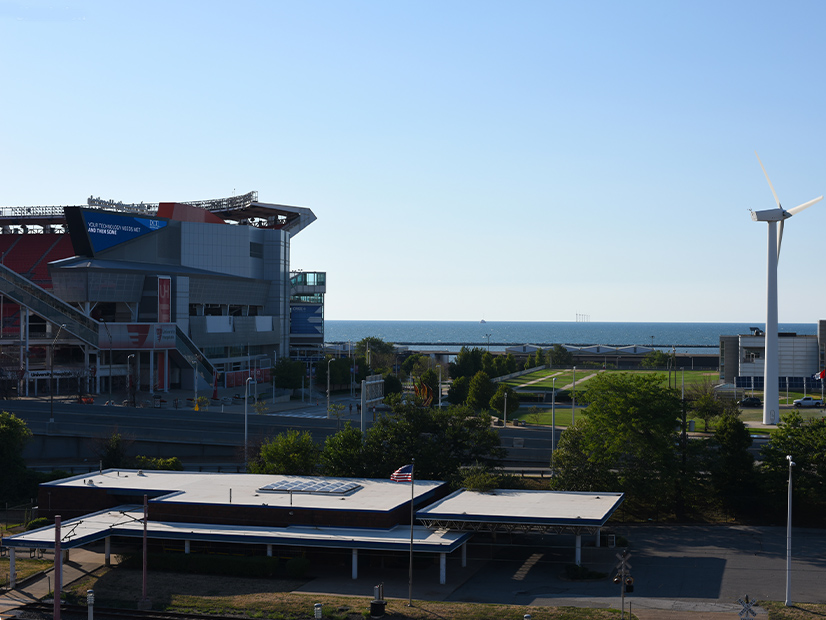The Ohio Supreme Court this week removed a major legal obstacle to the construction of Icebreaker Wind, a demonstration wind farm in Lake Erie, 8 to 10 miles northwest of downtown Cleveland.
In a 6-1 decision, the court ruled that the Ohio Power Siting Board’s May 2020 approval of the project was proper, ending a two-year legal battle that capped at least a decade of effort by the Lake Erie Energy Development Co. (LEEDCo).
The project would be the first freshwater wind project in the U.S. and have to stand up to winter ice flows on Lake Erie. It had been approved by the Ohio Environmental Protection Agency, the U.S. Department of Energy, the Federal Aviation Administration, the U.S. Coast Guard, the U.S. Army Corps of Engineers, the U.S. Fish and Wildlife Service and the Ohio Department of Natural Resources before the PSB ruled on the issue. It had also won significant funding from DOE.
With six turbines on 4.2 acres of state-owned lake bottom, the project would have a total generating capacity of 20.7 MW. The city of Cleveland and Cuyahoga County had agreed to buy about a third of the output. The company must still find takers for the remainder. LEEDCo has also partnered in 2016 with a Norwegian wind developer experienced in offshore wind projects.
The PSB initially approved the project with the condition that LEEDCo turn off the turbines at night for up to 10 months of the year to avoid interfering with bird migration and bats. The company countered that it would not be able to attract or keep investors if it agreed to that provision, as overnight winds are generally more reliable for power production.
After months of negotiation in which LEEDCo committed to enhanced radar surveillance, a sophisticated new collision detection system and a commitment to shut down when or if birds began colliding, the siting board approved the project.
But two residents of an upscale lakeshore community near Cleveland appealed the approval. They argued that LEEDCo had not submitted sufficient evidence for the board to determine the impact of the turbines on birds and bats. The board, which by then had decided to require LEEDCo to report bird collisions, rejected the argument and two subsequent appeals of its decision.
Writing for the court’s 6-1 majority decision, Justice Jennifer Brunner explained that the board collected the necessary research to allow Icebreaker to begin construction, while also requiring more data before the company can operate the turbines.
“Rather than requiring Icebreaker to resolve those matters before issuing the certificate, the board determined that the conditions on its grant of the application were sufficient to protect birds and bats and to ensure that the facility represented the minimum adverse environmental impact,” Brunner wrote.
LEEDCo Board Chairman Ronn Richard, CEO of the Cleveland Foundation, said Ohio has no choice but to embrace the energy transition to meet the state’s power needs. He noted that Intel’s decision to build the world’s largest computer chip factory near Columbus includes a commitment to power 100% of its operations with renewable energy. Other companies in Northeast Ohio and throughout the state have also set ambitious renewable targets.
“We’re pleased with the ruling from the Ohio Supreme Court,” Richard said. “The Cleveland Foundation has supported Project Icebreaker from its inception because this is about more than clean energy; this is about a healthy economy and a healthy community. Project Icebreaker shows that Northeast Ohio — and the entire state of Ohio for that matter — is open for businesses.”



